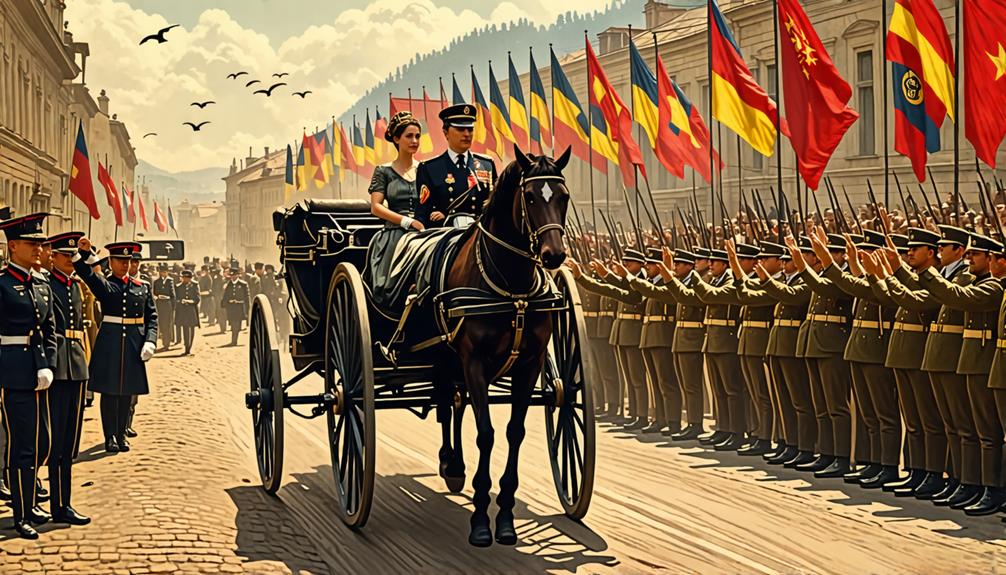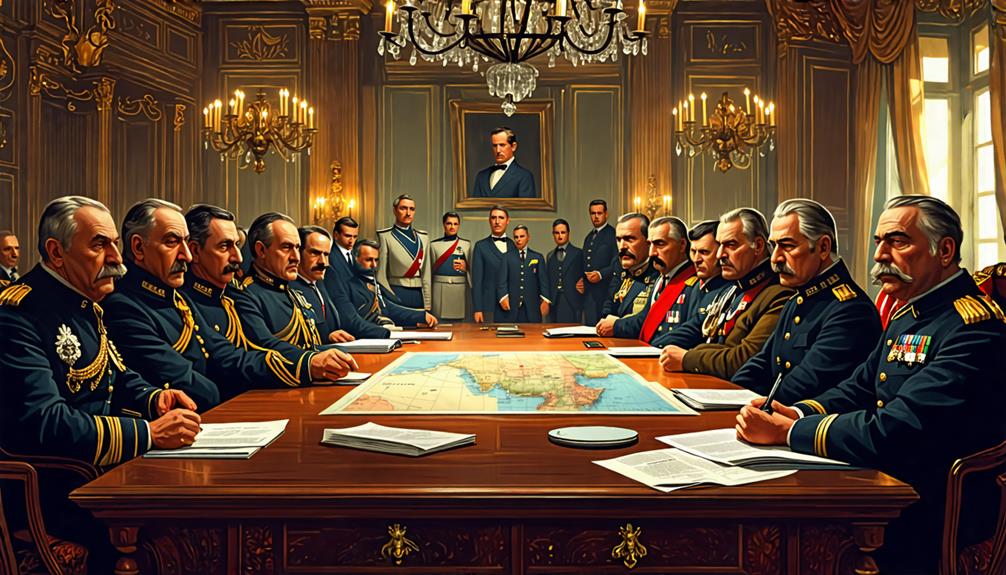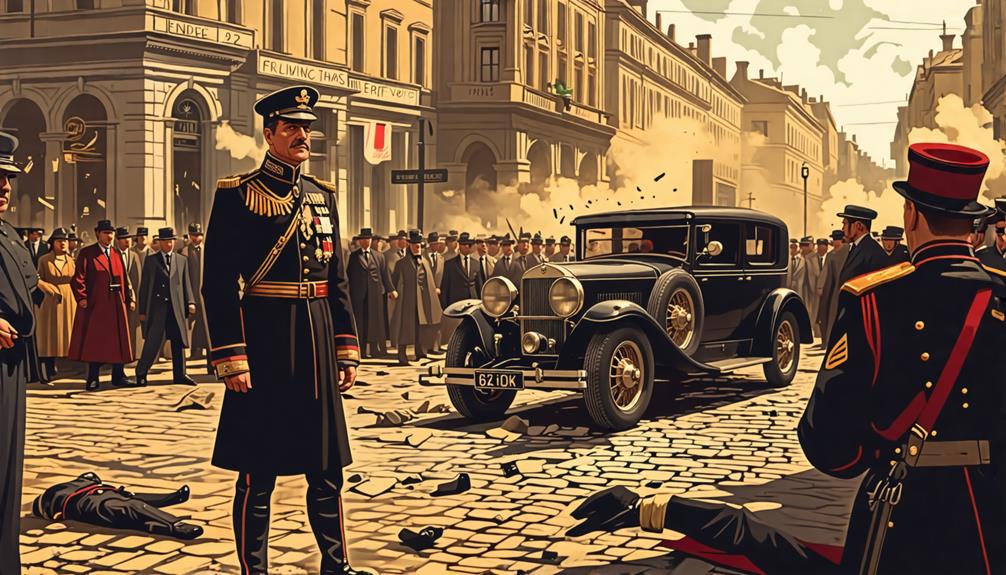Imagine if Archduke Franz Ferdinand had survived the assassination attempt on June 28, 1914. How would the course of history have changed?
If the Archduke had lived, Austria-Hungary might have taken a more diplomatic approach to the crisis.
However, the complex web of alliances and growing nationalism in Europe had created a dangerous situation that was ready to explode at any moment.
The Balkan Powder Keg

In an alternative history, the Balkan Powder Keg could have ignited a war at a different time or under different circumstances. One theory is that if the tensions had continued to simmer without the assassination of Archduke Franz Ferdinand in 1914, the region might've exploded into conflict at a later date.
It's possible that another event, such as a different political assassination or a border dispute, could have triggered the war. If this had occurred, the alliances and balance of power in Europe might've shifted, leading to a different set of belligerents and a different outcome.
The war could have been shorter or longer, with more or fewer casualties, and the post-war map of Europe could have looked quite different.
Austria-Hungary's Response
Without the assassination of Archduke Franz Ferdinand, one theory is that Austria-Hungary would have taken a more diplomatic approach to the tensions in the Balkans. The Empire might've focused on negotiations and asserting its influence through non-military means to maintain stability and protect its interests.
It's possible that this scenario could have played out at a later date, with another high-profile assassination or event triggering a similar chain reaction.
However, it's also conceivable that a more measured response from Austria-Hungary could have led to changes in the alliances and power dynamics of early 20th-century Europe, potentially altering the course of history.
Diplomatic Maneuvering

In this alternate timeline, Austria-Hungary's restrained response could have led to a series of diplomatic negotiations aimed at easing tensions in Europe. One theory is that this measured approach may have temporarily maintained the balance of power, but underlying issues like nationalism and colonial rivalries would have remained unresolved.
It's possible that a major European conflict, similar to World War I, could have erupted at a later date due to a different catalyst. In our timeline, the Nazi regime instigated World War II over two decades after the events of 1914, showing how fragile peace can be when core problems are left unaddressed.
Alliances Tested
Even if a diplomatic resolution had been reached, the complex network of European alliances would likely have been strained following the archduke's survival. Mistrust and suspicion among nations could have grown, with Austria-Hungary harboring lingering resentment while Serbia's allies, such as Russia, remained vigilant.
One theory is that the delicate balance of power might've been shattered if any provocations or missteps occurred later. It's possible that a similar scenario could have unfolded years or decades after 1914, triggered by another international incident or assassination, leading to a delayed but equally devastating conflict.
Alternate Timelines

In one potential timeline, the survival of Archduke Franz Ferdinand could have led to a gradual de-escalation of tensions in Europe. This might've resulted in a more stable balance of power among the major European nations, potentially avoiding or delaying the outbreak of a large-scale conflict.
However, another theory suggests that even if the assassination attempt had failed, the underlying tensions and alliances in Europe would have eventually led to a delayed Great War. With more time for technological advancements and shifts in alliances, this alternate global conflict could have been even more devastating than the one that occurred in our timeline.
It's worth noting that assassination attempts on prominent figures weren't uncommon during this period. If the attempt on Franz Ferdinand had been unsuccessful, it's possible that another catalyst could have sparked a similar chain of events at a later date.
Lessons From History
If Franz Ferdinand had survived the assassination attempt in 1914, it's possible that World War I could have been delayed or even prevented. One theory is that without the catalyst of Ferdinand's death, the complex web of European alliances may not have been triggered into action.
However, it's important to note that the underlying tensions and conflicts between nations were already present. The assassination of Franz Ferdinand wasn't the sole cause of the war, but rather the spark that ignited existing hostilities.
It's possible that even if Ferdinand had survived, another event could have eventually triggered a similar global conflict. In fact, some historians argue that World War I was inevitable due to the economic, political, and social factors of the time.
Conclusion
You're left pondering the fragility of peace, as the assassination attempt on Archduke Franz Ferdinand nearly ignited the Balkan powder keg.
His survival might've bought time for diplomacy, but like a house of cards, the delicate balance of power could have easily collapsed.
The alternate timelines are intriguing to imagine, but the lessons from history remain clear: unchecked nationalism and tangled alliances can lead nations down a path of no return.

Leave a Reply